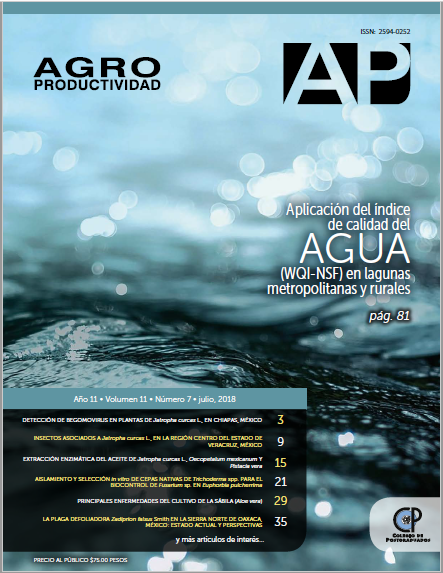SOCIOECONOMIC EXPERIENCES OF THE PRODUCERS OF THREE CROPS WITH BIOENERGY POTENTIAL IN MEXICO
Main Article Content
Keywords
Sugarcane, moringa, jatropha, socioeconomic experiences, bioenergetics
Abstract
The production of crops for bioenergy purposes is an activity that the government of Mexico has fostered since 2008. However, comparative evaluations are still required among the different options to determine which ones will have the greatest potential for the Mexican producers. The objective of this study was to document and compare the socioeconomic experiences that the producers of three Bioenergy crops: sugarcane (Saccharum spp.), Mexican pine nut or jatropha (Jatropha curcas) and moringa (Moringa oleifera) have challenged in the production process and marketing in different states of the country. The information obtained was accomplished through the application of 35 semistructured questionnaires to the different producers. The analysis of the information was made by descriptive statistics. The results showed that the producers of sugar cane have an absolute dependence on the sugar mills, lower levels of education, they are older, and there is greater participation of women in comparison with the producers of moringa and
jatropha. The producers of jatropha have received economic benefits from the Mexican government, although currently the market for this crop in México is almost nonexistent. In the case of moringa producers, they had not received governmental support, and even so they obtained greater economic satisfaction because they have managed to develop a value chain in the pharmaceutical and food supplements industries. It is concluded that the production of moringa is the one that represents the greatest advantages for Mexican producers, but at the same time it requires an investment in expertise superior to the national average.

